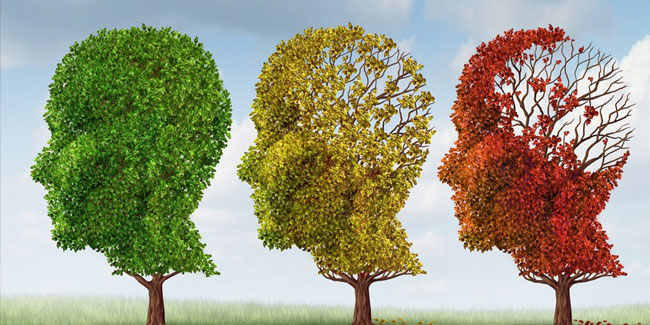World Brain Day
World Brain Day is held on July 22. Was launched by the World Federation of Neurology on 22 July 2014 and is dedicated to a different neurological disease or topic every year. This event in the third decade of the month July is annual.  Help us
Help us

The human attention span is shorter than a goldfish. Research shows that the average attention span has decreased by an average 12 minutes over the last 10 years. Studies have even shown some links between device multi-tasking — for example, if you’re scrolling through social media while watching TV — and declining attention spans.
Your brain is about the size of your fist and weighs on average three pounds. But the organ holds 400 miles of blood vessels, some 100 billion neurons, and around a trillion glial cells (a type of cell thought to protect and support neurons). Like with fingerprints, no two people have the same brain anatomy, a study has shown. This uniqueness is the result of a combination of genetic factors and individual life experiences. Like with fingerprints, no two people have the same brain anatomy, a study by researchers of the University of Zurich has shown.
Brain disease is the leading cause of disability worldwide, contributes the main global burden of disease and is the second leading cause of mortality. The World Federation of Neurology (WFN) has raised its voice to proclaim World Brain Day on July 22 to raise awareness of its potential, risks and diseases.
It is estimated that 13% of the causes of disease worldwide are linked to neurological diseases and mental disorders.
The main diseases affecting the brain are stroke, neurodegenerative diseases - such as Parkinson's or Alzheimer's - epilepsy, migraine and multiple sclerosis. Neuromuscular diseases also cause a high burden of disability.
Similar holidays and events, festivals and interesting facts
 World Whale and Dolphin Day on July 23 (International Whaling Commission — IWC);
World Whale and Dolphin Day on July 23 (International Whaling Commission — IWC); International Self-Care Day on July 24 (Self-care is caring for your mental and emotional needs, physical needs, social needs, spiritual needs, practical needs and intellectual needs)
International Self-Care Day on July 24 (Self-care is caring for your mental and emotional needs, physical needs, social needs, spiritual needs, practical needs and intellectual needs) International Day of Junk Food on July 21
International Day of Junk Food on July 21 International Lamington Day on July 21
International Lamington Day on July 21 Dog Day in Latin America on July 21
Dog Day in Latin America on July 21 Day of Healthcare and Medical Industry of Turkmenistan on July 21
Day of Healthcare and Medical Industry of Turkmenistan on July 21 International Homework Day on July 22
International Homework Day on July 22